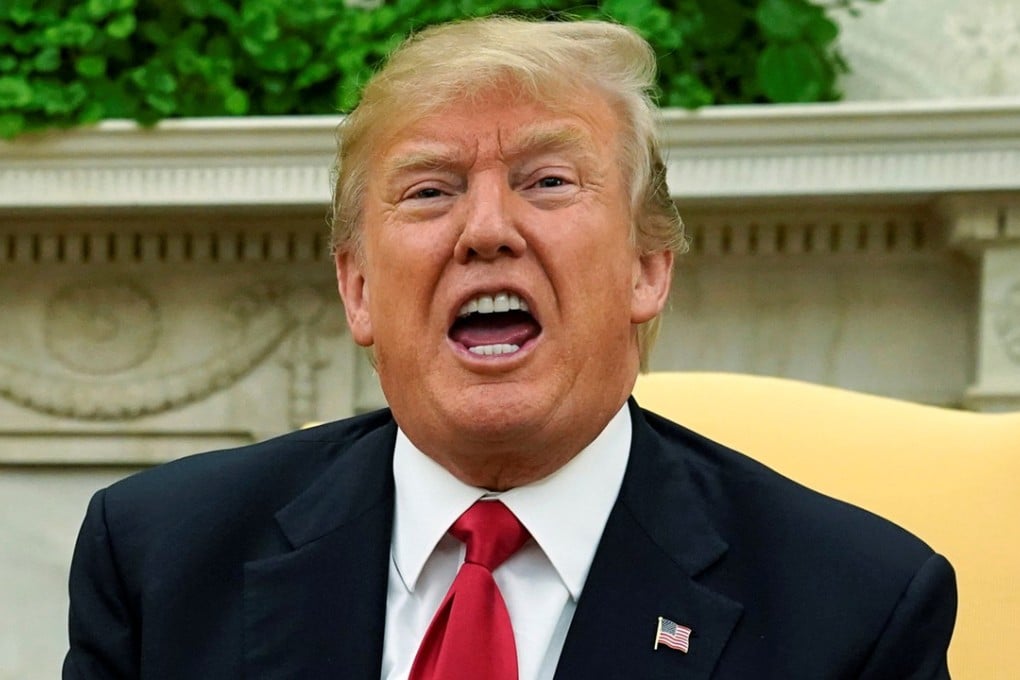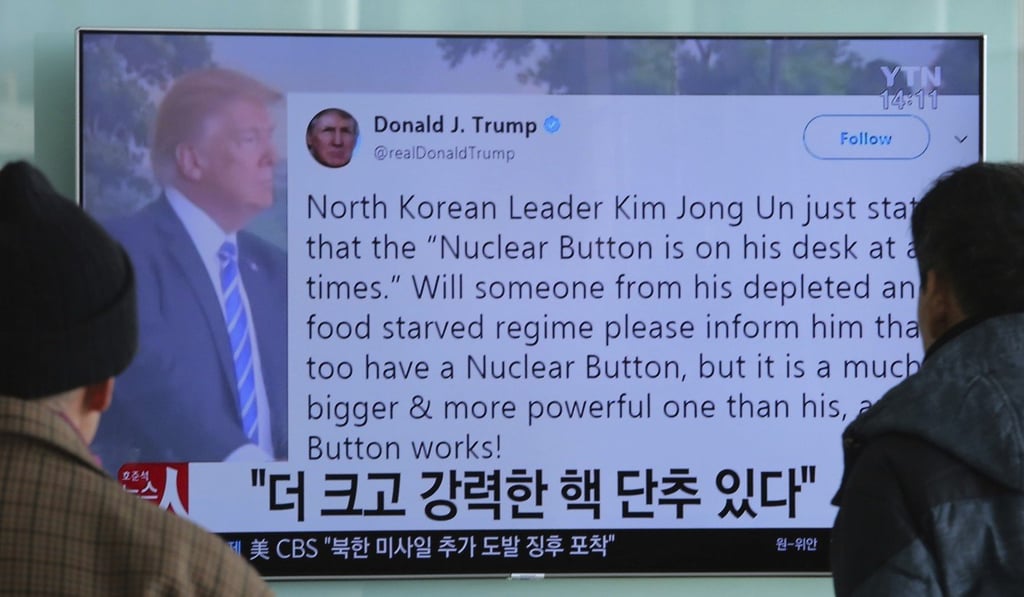Trump’s big button to Thai penis whitening: hail the emperor, without his clothes
The US president’s boast about his bigger nuclear button has roots in imperialism’s use of phallic domination as a tool for power projection

“I’ll liberate Africa with my penis,” declares Mustafa Sa’eed, a protagonist in Sudanese writer Tayeb Salih’s Season of Migration to the North, considered one of the most important works in Arab literature.
Sa’eed, whose life coincides with the period of British colonisation of Sudan, is a brilliant student who goes on to study in Britain, shines in academia, shows political promise in his leadership of the anti-colonial struggle, and writes scholarly tomes. But he has a fatal flaw: he uses his exotic charm to seduce English women. He destroys their lives in the process, three of them commit suicide. But for Sa’eed, it’s all for a cause – they are collateral damage in his quest to reclaim the masculinity that Sudan has lost to the British empire.
Singapore and Hong Kong may be different, but there’s no debate on what the British did to India
In his perverse conquests, Sa’eed is seeking to reverse a sexualised power dynamics that has existed between empires and their colonies, new and old. From Rudyard Kipling to Theodore Roosevelt, imperial agency has always sought to justify colonial campaigns as “manly” civilising missions, citing the coloniser’s masculine superiority as the rationale for its right to control distant lands – a well-hung empire for the well-endowed colony.

The resistance to the imperial project has also, consequently, been mostly couched in muscular terms. Asia’s freedom struggles are replete with clarion calls for men to rise and stop the rape of the motherland, a universal nationalist trope. As Cynthia Enloe puts it in her Bananas, Beaches, and Bases, “nationalism has typically sprung from masculinised memory, masculinised humiliation and masculinised hope”. Look no further than Sa’eed.
Judging empires: Was Japanese rule in Taiwan benevolent?
But phallic domination as a tool for power projection and control has got a lot subtler since the days of assembly-line rapes by Genghis Khan and his men, to the extent that it can go mostly undetected these days. Until its cover is blown now and then by an unsubtle practitioner such as Donald Trump, who recently tweeted that his nuclear button is “a much bigger and more powerful one” than that of Kim Jong-un, who he also fondly calls “Little Rocket Man”.
